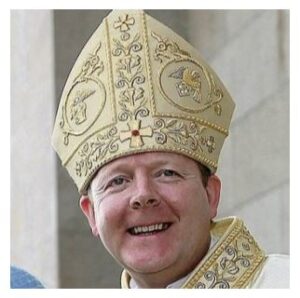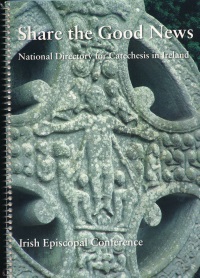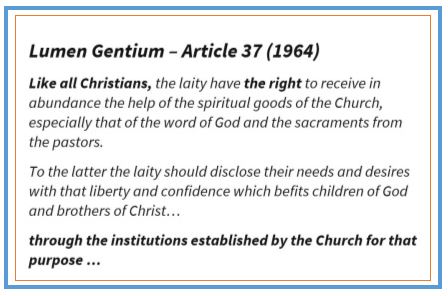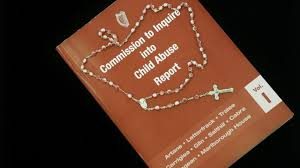
Archbishop Eamon Martin – will he initiate necessary conversations with lay people on the relationship of faith and politics?
“Faith is therefore no mere private affair. It entails a social duty, to help protect the future of humanity.”
(Archbishop Eamon Martin of Armagh, New Ross, 5th Sep, 2019)
Who could quarrel with this insistent message of Archbishop Eamon Martin on Sep 5th in New Ross, Wexford – in the teeth of the gale that is rampant Irish secularism. Those who see ‘the church’ always as Cardinal Richelieu, and its overthrow as a cure for everything from censorship to gout, have a faith also, and both a right and duty to speak it. They also need to see that Catholics have exactly the same duty and right.
But just how ready is Irish Catholic faith just now for the public square? If it is vigorous only in fighting a rearguard ‘culture war’ for ‘Christendom’ – i.e. for political victory on issues of sexuality, gender, abortion and denominational education (and losing even there) how is it to harness growing concerns over youth mental ill health, ludicrous income inequality, bullying in the workplace and on the Internet, spiraling addiction, vicious urban violence, corruption in public life and the need above all to discover an economic and social model that is at peace with itself, and environmentally sustainable?
Moreover, just what proportion of the 78% of Irish citizens who identify as Catholic could, or should, be mobilised now for that narrow ‘culture war’ platform? When the US Jesuit, Thomas Reese, argued compellingly in May 2018 that the narrow programme of criminalisation of abortion in any circumstances had lost that war in the US – by alienating too many of the most obvious frontline defenders of the child in the womb (i.e. women) – was he not clearly explaining the 2018 abortion referendum result in Ireland also?

Share the Good News – the 2011 programme for Irish catechetical renewal – launched but invisible in 2019
As for any stirring defence of Irish Catholic denominational education, while everyone notices the absence of school-going teenagers from weekly Eucharist the total inability of the Irish Bishops Conference to prove – by research – the faith-forming effectiveness of Catholic schools poses a direct question for Archbishop Eamon: just how strong now is his own faith in the Irish Catholic school system as guarantor of the continuity of Irish Catholic faith?
Especially when he remembers the still-anchored 2011 programme for Catechetical renewal and adult faith formation in the parish: Share the Good News? To repeat the April 2019 question of Archbishop Diarmuid Martin of Dublin, whatever happened to that?
And if Irish politicians are to express their Catholic faith in the public square, how are they to forget that just a decade ago the Ryan report identified Catholic deference to clergy as a key factor in the scandal of the abusive ‘industrial schools’ of the last century? When Archbishop Eamon Martin advises us lay people to distinguish between ‘personal opinion’ and ‘a well-formed Christian conscience’ is he implying that only bishops could have the latter, and that those with nothing more than the former must therefore, as ever – defer?
And apropos any supposition that Catholic bishops have some kind of spiritual superiority when it comes to moral discernment, is Archbishop Eamon ready to explain how exactly the Irish bishops’ record on child protection supports that same supposition?
What conversations have Irish bishops facilitated, since 2009, – at any level in the church – on that crucial difference between respect for clergy on the one hand, and deference on the other? Such conversations might well have become unavoidable if Bishop Noel Treanor’s initial call for a multi-disciplinary inquiry into the Ryan-revealed catastrophe had been supported by the Irish Bishops Conference. The reluctance of Irish Catholic bishops to research and then discuss any issue in depth with their own people – from the faith-forming potency of Catholic schools to the strange inability of Catholic bishops everywhere to put the interests of children above those of abusive clergy – has itself most seriously undermined their own authority.
And it is not aggressive secularism but continuing Irish clerical fear of open dialogue, at every level of the church, that now imperils Irish Catholic faith most seriously. Always forbidding an electoral process at the parish base, even one confined to proven weekly parish donors, clerical paranoia over loss of control has torpedoed the prospects of too many parish pastoral councils. Lay Catholics alienated by that, and by the continuing failure of the hierarchy to come to terms with the clerical church’s inadequacy re clerical child abuse, now far outnumber the still-committed in most parishes in Ireland.
 That is why ACI is now calling, fervently and faithfully, for the honoring of the clear commitment made by the church’s bishops in 1964 in Lumen Gentium #37 – to establish, at long last, regular elected structures for open and free communication between people and pastors, at both parish and diocesan level. If Cardinals can have the right to elect a pope, why on earth do long-term Irish communicants still have no right to an annual parish assembly and the election of a parish pastoral council that can withstand clerical dismissal or even outright clerical opposition?
That is why ACI is now calling, fervently and faithfully, for the honoring of the clear commitment made by the church’s bishops in 1964 in Lumen Gentium #37 – to establish, at long last, regular elected structures for open and free communication between people and pastors, at both parish and diocesan level. If Cardinals can have the right to elect a pope, why on earth do long-term Irish communicants still have no right to an annual parish assembly and the election of a parish pastoral council that can withstand clerical dismissal or even outright clerical opposition?
It was failure to provide those Lumen Gentium # 37 institutions that doomed us to the disasters of 1994-2009, and nothing short of providing them now can release the Irish clerical Church from this present cul-de-sac of its own making. Until that happens ‘aggressive secularism’ will win every argument – by pointing to continuing Irish Catholic clerical fear of open dialogue as proof of the absence of the very thing that Archbishop Eamon Martin seeks to make room for in the public square: a confident and vibrant Irish Catholic faith, expressed freely by a truly free – and non-deferential – Irish people of God.


Sean,
What better time to campaign for the rights of conscience and the laity (LG37) with the canonisation of Saint John Henry Newman focussing the spotlight on these two pillars of his philosophy.
Anthony, excellent point!
Aidan